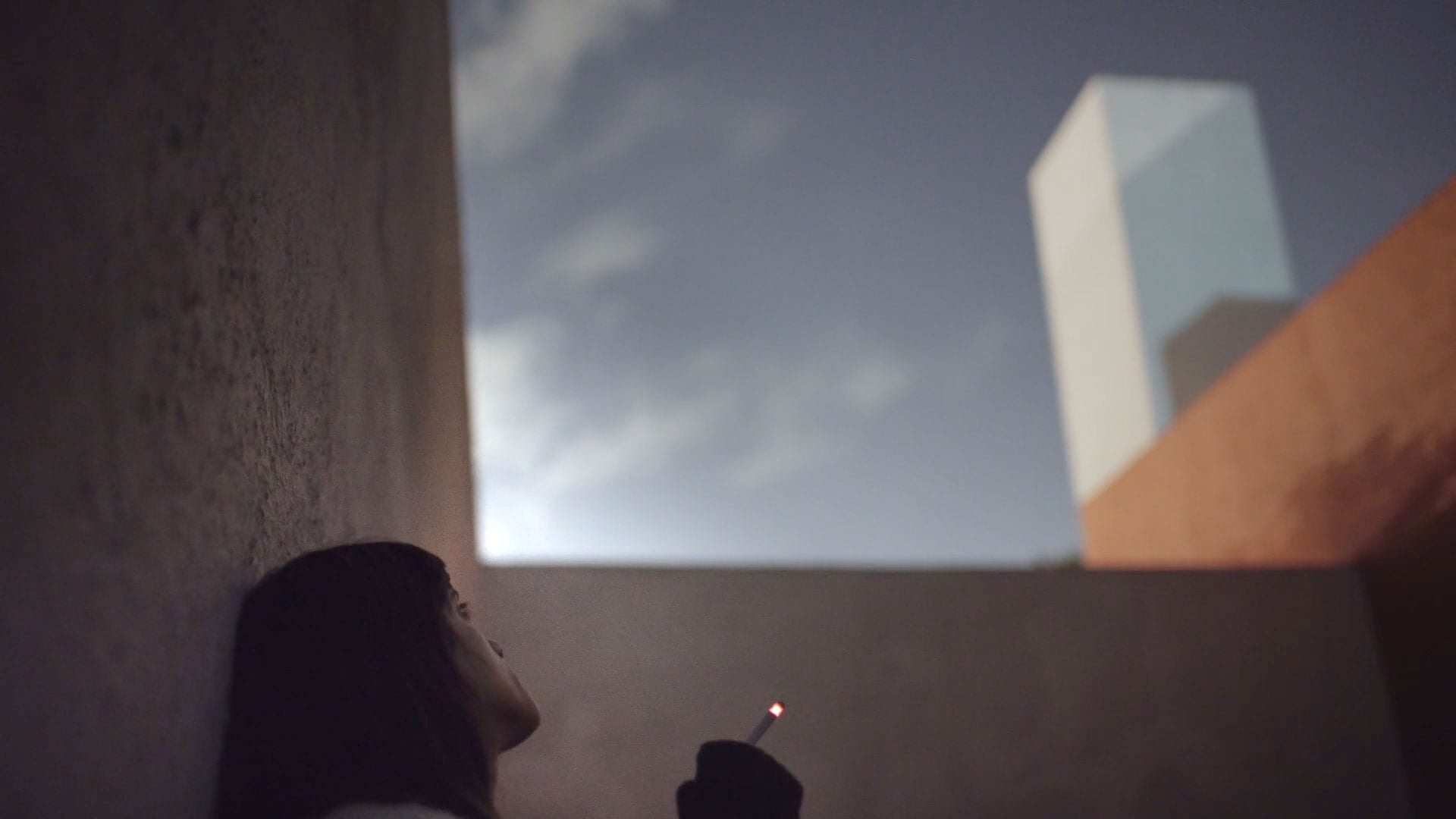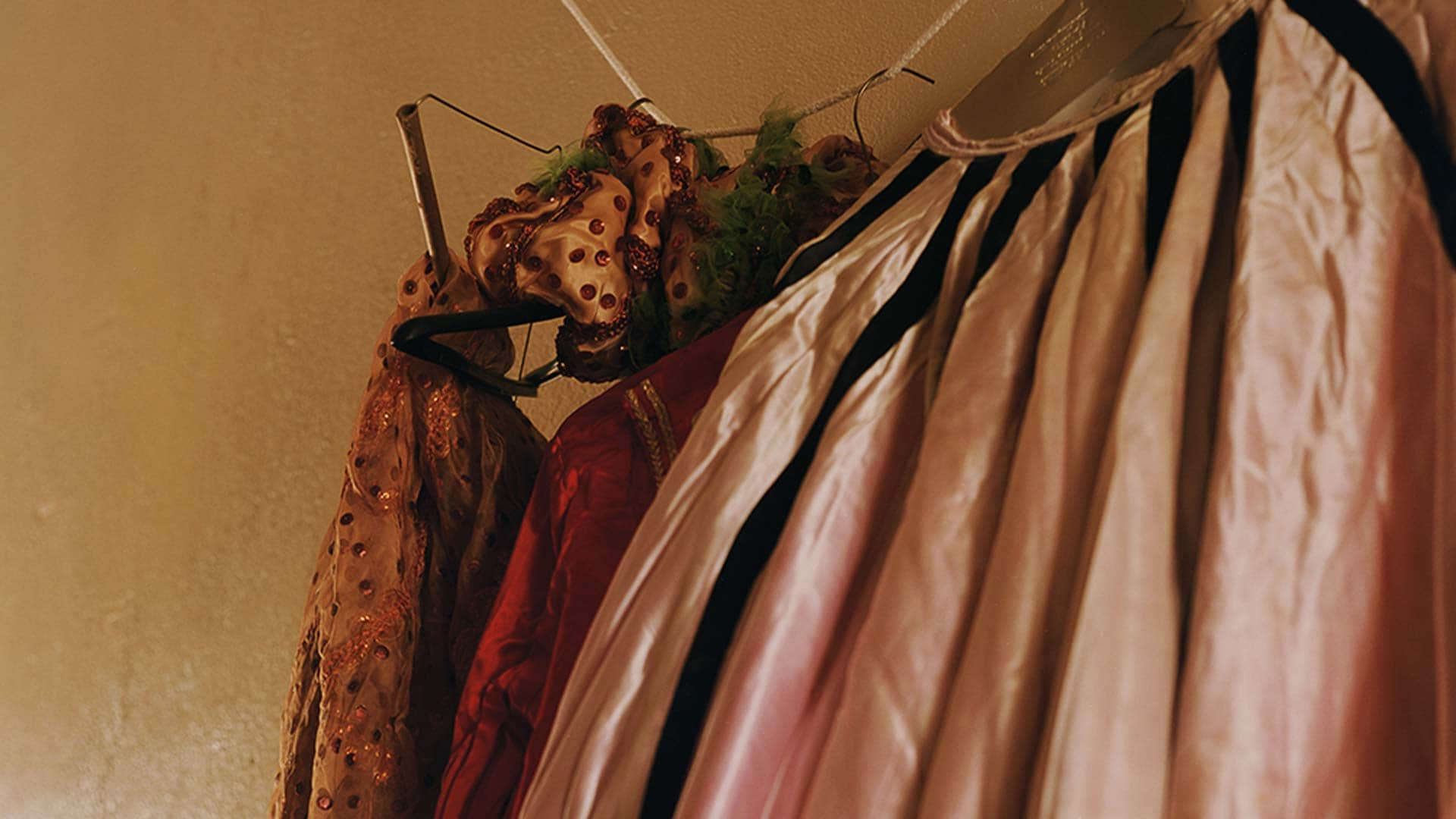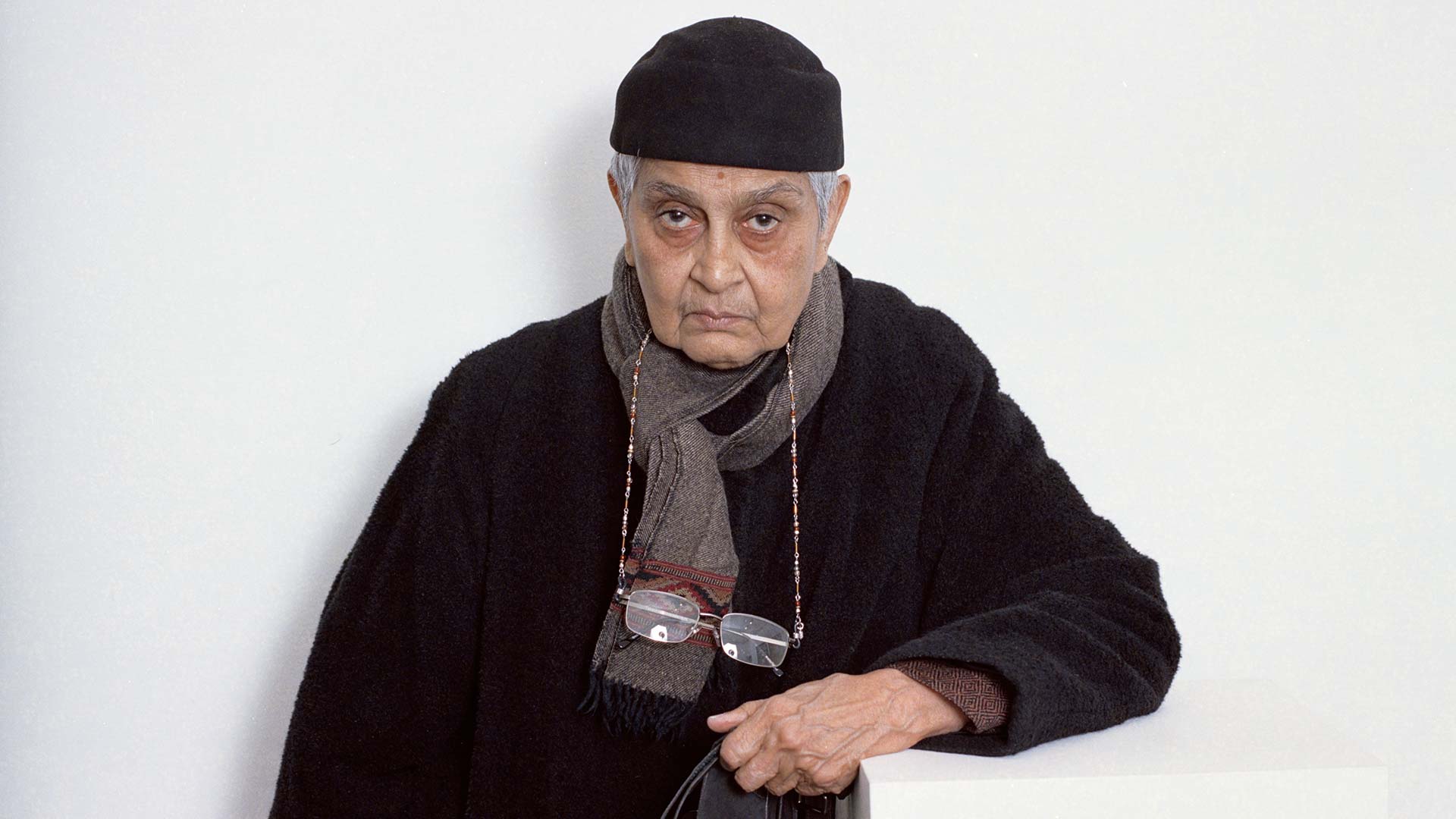In a darkened art gallery in Bangkok’s Sathorn Soi 1, Apichatpong Weerasethakul is preparing for Metaphors, a film screening, music performance, and art installation rolled into one—an event marked by the deliberate disregard for the formalistic division that has increasingly characterized his major work in recent years. The space is cavernous and bare, except for the moving images projected onto the walls; sometimes two films play simultaneously on different walls. Technicians and assistants buzz around the movable scaffolding in the middle of the gallery, preparing for the first screening that will take place this evening. In their attire and movements, they look like elegant versions of the coolest kids you might see in an L.A. skate park, mixed with a healthy dose of Seoul hip. They are mostly in their twenties and early thirties, energetic yet calm. In the middle of this peaceful scrum, Apichatpong sits huddled over a laptop, next to the main control board. Every so often, people approach him to discuss technical details: the precise placement of speakers, the timing of the beats of music, and so on. Their attitude toward him lies somewhere between easy familiarity and reverence. Metaphors consists of an entire evening’s worth of short films and music made by members of Kick the Machine, Apichatpong’s collective of filmmakers, musicians, artists, and technicians. Although the event is a collaboration, Apichatpong’s creative energy lies at the heart of the initiative. The blurring of traditional hierarchies separating cinema’s primary and secondary players has been a pronounced feature of Apichatpong’s work for many years, just as the boundaries of his filmmaking have been pushed toward installation and performance, in which sound plays as important a role as images.
Kick the Machine is the name of your production company, but it’s obviously much more than that—a group of collaborators who have come to represent the Thai avant-garde, and who also, it seems to me, provide you with a sort of network of support, both socially and artistically. Where does the name come from? It comes from a time when I was working in a kind of art space, running the film-screenings section, which I named Kick the Machine, for lots of different reasons. Firstly, from a mechanical point of view—kicking the machine as a term for turning something on, the projector, for example, getting things started. I also love technology—different cameras, for example—and I always want new things. You kick out the old machine and get a new one. And of course there’s also kicking the machinery of society, rebelling against the Establishment—in the filmic sense, but also in wider society. Pushing back against what we are supposed to be. I wanted to create a collective of people to collaborate with, but doing so immediately threw up a dilemma, because I’m very much an introvert and I found that I couldn’t manage the collective as actively as I would have liked. On the other hand, because I’m an introvert, I’ve also discovered that I need company, so the people I work with have become a sort of community for me. Over the years, they’ve come to understand me better than I do. They explain things to me. For example, they analyze my actors, which I wouldn’t normally do. The idea of time in my work—the way I use and explore time—was explained to me by my editor. My sound engineer told me, “You like this frequency.” I’d never really articulated those thoughts to myself. I wasn’t even aware that I gravitated toward a certain sound, or played with time in a certain way. If I didn’t have this group of friends around me, I might still not be alert to what’s happening in my films. But you seem to have an incredible grasp of the minute technical implications of your work. What I mean is that I don’t overanalyze what I do, or why I’m drawn to certain sounds or patterns of thought. I sometimes push to achieve certain effects without knowing why. There’s no recipe for producing magic in filmmaking. Even Hollywood can’t predict what’s going to be good, despite putting out the most predictable of all cinematic forms. Music starts to play—a quick electronic beat supporting an eerie, continuous note. On the large wall in front of us, a short film plays, showing a young man (Sakda Kaewbuadee, who often appears in Apichatpong’s work, and who will arrive midway through the screenings later in the evening to deliver a moving personal story) performing domestic tasks—Thai life reduced to its most routine, celebrated for its humdrum nature. Instructions appear on the screen, and the man cheerfully obeys, performing his chores without question. Except they are not jobs, more like random orders issued by a child. Scrub the toilet. Pick some coconuts. Scratch your ears. Eat some trash. Have a pee. Play some soccer. He repeats some of these tasks. His movements are sped up. All the time, the unsettling, unrelenting music plays. The title appears on the screen: Ghost of Asia. You said something earlier about Kick the Machine and rebelling against the Establishment. I’ve always been struck by how your films operate on a political level, even if it isn’t obvious. No, not in the activist sense of “political.” I’m not entirely sure what being a political filmmaker means. I don’t have an agenda in my films, I don’t have a grand desire to use my films to instigate change. In the same way that I don’t subject my thematic and technical work to too much analysis, I’m not aware of the way politics works in the foreground of my work. But obviously it is there, and it’s only when I’m chatting to someone like you in this manner, trying to understand my own work, that it becomes obvious. It’s true that your films are so haunting that they defy easy categorization, but so much of your work focuses intensely on the daily lives of mostly humble people, whose existence is generally overlooked. And in this rather magical transformation of routines bordering on the monotonous, it’s clear that these lives are enmeshed in the changing and often violent politics of Southeast Asia. Every time I travel to the West—and I’m talking really about pre-Trump, pre-Brexit days—the thing that strikes me is how insulated daily life in Europe or America is from the vagaries of politics, compared with how it is in Southeast Asia. We’ve all grown up with the possibility of huge regime change, we’ve seen tanks on the streets, and we have a sense of every tiny political decision having a huge and direct effect on our lives. We don’t yet have the social institutions to protect us against politics. Yes, absolutely. I agree, and if that’s the case, then of course politics is part of my work—because it’s part of daily life. It’s like the air we breathe. How can we not capture politics if we attempt to capture the way people live? Politics is enmeshed in our every day. We can’t escape it, even if in Southeast Asia we’re very good at finding ways to distract ourselves from it. We can live quite comfortable lives if we want to, even without very much money, but then at a certain point you start to see the mechanism that drives society and you realize it’s very ugly. Your films seem drawn to a certain kind of person, a certain kind of life—modest people, often in rural areas, seldom wealthy, usually marginalized, even though we get a sense that they represent the majority of the population. The very opposite of the rosy view of Thailand held by foreigners, even by your closest neighbors across the border, such as myself. I always start a film by thinking of a place, a location. I have a very intense relationship with locations. I think it comes back to being an introvert—I guess I do this because I don’t have to deal with people when I’m first thinking of a project! In any case, all projects start with a location, in particular with an attachment to the light in that place. I find myself having a conversation with that location, and I slightly lose sight of reality. You really need to respect your surroundings. When you meditate, you become transported to somewhere else. What’s left is your surroundings. You depend on that, more than you do on your physical being. For me, filming a location—a nonliving object—involves the same respect as filming yourself. It involves the same respect as questioning or conversing with another human being. There is a responsibility and there is a bond that exists in filming a location. Do you think that’s really the fate of popular political discourse now? Facebook, I mean. I often feel that Southeast Asian societies are balanced on a knife-edge, with extreme respect for society and its hierarchies on the one hand, and extreme frustration on the other, often sitting under quite authoritarian regimes. [laughs] Those of us who’ve grown up in these social systems know that the situation is very complex. Some people describe the government as a dictatorship, but can you call something a dictatorship if it’s freely and willingly endorsed by so many people? In some ways, though, I feel that the restrictions placed upon us are much deeper than just governmental. Living in Thailand, there are so many things you can’t touch—so many institutions, customs, and so on. Mostly, people don’t think about these structures, but when they do, it seems impossible to change anything. My films are a way of articulating how we live. Which I guess is why I keep coming back to a certain kind of character, the one that you mentioned. People who just have to make the best of a system that they don’t question. I don’t think my own life is that interesting, but the lives of other Thais—the people I work with, people I meet when I travel across the country—are fascinating in how they reflect this meeting of desire and restriction. In Krasob, a group of small boys, no more than four or five years old, kick a sack filled with rice, or perhaps sand, which hangs from the beams in a shelter next to a house. The ground underfoot and in the yard beyond is of dirt and mud, and the houses appear flimsy, part timber plank, part concrete block. The boys and the odd adult who crosses the screen are barefoot, dressed in the simplest clothes possible, the kind sold at night markets at very low prices. They attack the sack with all their strength, kicking, punching, laughing, and groaning, proving to one another their early masculinity. But there is a futility to their efforts. They tumble, they fall. They cannot hurt this object. It might move a little, but never enough. What are they really trying to achieve? They laugh. But still they continue.
I’ve always been very moved by the relationship your films have not just with Thailand but with specific locations within the country. Each location becomes elevated to something magical. I always start a film by thinking of a place, a location. I have a very intense relationship with locations. I think it comes back to being an introvert—I guess I do this because I don’t have to deal with people when I’m first thinking of a project! In any case, all projects start with a location, in particular with an attachment to the light in that place. I find myself having a conversation with that location, and I slightly lose sight of reality. You really need to respect your surroundings. When you meditate, you become transported to somewhere else. What’s left is your surroundings. You depend on that, more than you do on your physical being. For me, filming a location—a nonliving object—involves the same respect as filming yourself. It involves the same respect as questioning or conversing with another human being. There is a responsibility and there is a bond that exists in filming a location. One of the feelings I always get from your films, whether they are set in deeply rural Thailand or in metropolitan Bangkok, is the sense of being haunted—often by ghosts (of people and animals), but sometimes by something else that I can’t really articulate. I love ghosts and spaceships, especially rockets, in the science fiction of my time, because they are so far from my life anchored in small-town Thailand. They are something magical—antimatter, antigravity, anti-time. In this way they are like movies, which are also magical. They have an overlapping quality with ghosts; they are ephemeral, like memory. In Thailand, as in all of Asia, we repress so many memories that we lose much of our political past, and also our fables and legends. We try to develop the country, but the result is that a lot of our everyday culture, the way we live, gets forced into extinction. My films try to examine the roots of where I live, to dig down and see whether I can understand the conditions of my life and where it came from. One of the feelings I always get from your films, whether they are set in deeply rural Thailand or in metropolitan Bangkok, is the sense of being haunted—often by ghosts (of people and animals), but sometimes by something else that I can’t really articulate. I love ghosts and spaceships, especially rockets, in the science fiction of my time, because they are so far from my life anchored in small-town Thailand. They are something magical—antimatter, antigravity, anti-time. In this way they are like movies, which are also magical. They have an overlapping quality with ghosts; they are ephemeral, like memory. In Thailand, as in all of Asia, we repress so many memories that we lose much of our political past, and also our fables and legends. We try to develop the country, but the result is that a lot of our everyday culture, the way we live, gets forced into extinction. My films try to examine the roots of where I live, to dig down and see whether I can understand the conditions of my life and where it came from.


